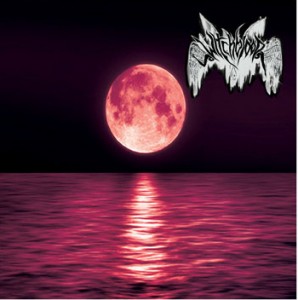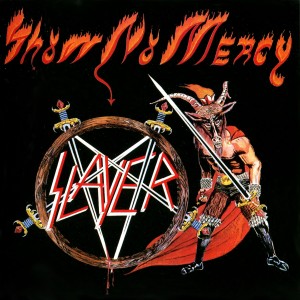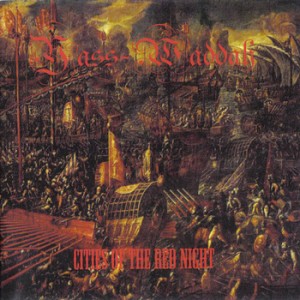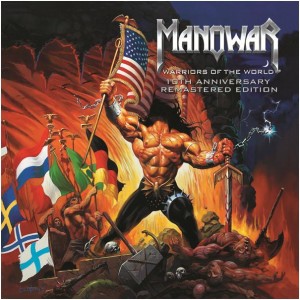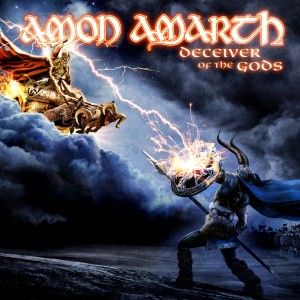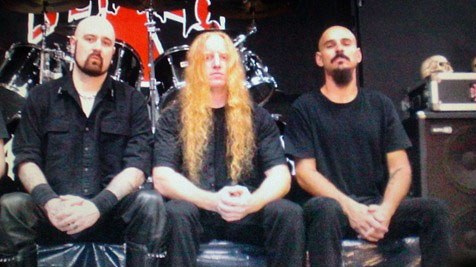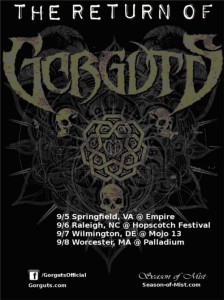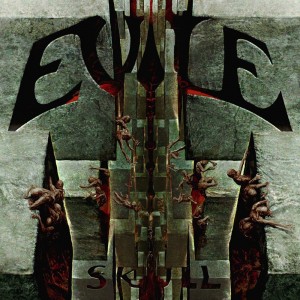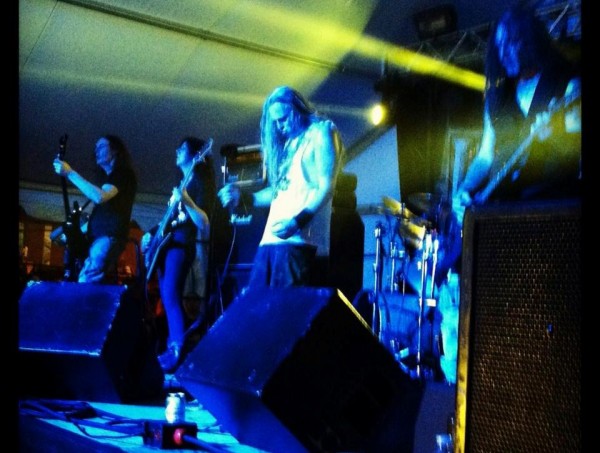
With over 70 bands playing four stages in total, Maryland Deathfest has become one of the biggest meetings of metalheads in the US, and it will only get bigger from here on, as the organizers possibly look to cash in on years of service. One only hopes they don’t sacrifice quality in the choice of bands to achieve it, though this year is touch and go. Giving relative unknowns a chance is one thing, promoting mega-bands past their prime or not worth your time is another, though overall it’s a worthwhile four day fest for those who enjoy metal and musicality.
Thursday May 23
The almighty Bolt Thrower was the only reason why the first day of the festival was sold out months in advance. This reviewer also caught sight of Abigail, who one astute festival-goer described as a sideshow Venom/Bathory rip off, though they’re more honest than Cobalt, who play an uncomfortable mix of styles from metalcore to prog-metal to post-metal while attempting to borrow a black metal feel and atmosphere.
Bolt Thrower
Bolt Thrower rarely disappoints, in your CD player or in concert, hence the hivemind excitement and anticipation generated for what to worn eyes must be just another routine appearance in the United States. What is standard is the playlist offered, which is a mix favoring their more ear/crowd pleasing but less inspired later albums. The intent for passion in live performance is still there, only unrelenting socioeconomic pressures get in the way of conveying a totality in epic experience. What we get instead is war metal presented as a theme, with half of the set songs embodying the essence of war more forcefully than the rest. Bolt Thrower up to For Victory… is a progressive evolution from classic grindcore to a peak in the unique and balanced style that stands as testament to the band’s contribution to metal. This is the half that works, and works well, especially in the enclosed “metal tent” setting preferred by these UK legends. After that album they went wayward into non-threatening, passthe-time music, so while it helps to have party music for a live show, the experience is diluted, i.e. not “pure,” but still invigorating and appreciated.
Friday May 24
Credit the organizers for knowing their grindcore and knowing their customers, giving them on day two a mini grind feast that gets the blood pumping and ready for infusion with gore and horror.
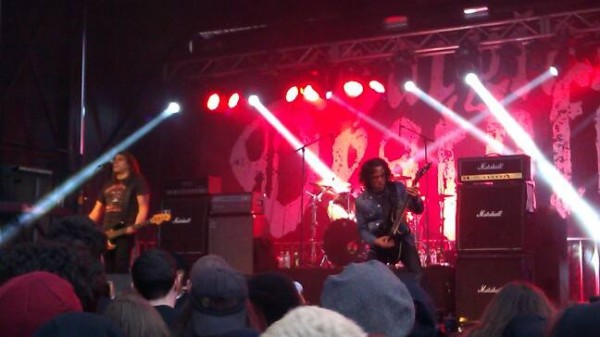
Repulsion
A comedian vocalist and groupies on stage were employed to keep us entertained between songs as Repulsion, a pair of “fucking old” dudes and a drummer from Criton, ripped through a set of the original™ grindcore that helped define the genre. In truth, this band set the tone and standard for the festival, showing the usual pretenders and prospectives the meaning of grind and the spirit of metal. What is not mentioned often enough in metal is that it is a smashing of ego, which includes all posturing, to see the details of reality for what they are, gory as they may be. This for me is what Repulsion’s seminal 1986 offering Horrified represents and exemplifies, and what this performance more or less achieves, peering at an extra layer of detail that even thrash couldn’t stomach, exploring it in closer to death metal riff form. As an expressive effect of the songs themselves, the physicality of performance (while in a manner appearing more punk-hardcore than grindcore) is a burst of energy that is age defiant while maintaining that nonchalant approach to technicality (though technically sound). To boot, this trio appear as clean-cut, overgrown miscreant types and of note is the popularity of this band, pulling almost as big a crowd as Carcass later this evening. Also played was a cover of Schizo from all time veteran purveyors of satanic imagery Venom.
Pig Destroyer
Right out the starting blocks these fellows made a huge noise appropriate to stir up chaos in the pit, playing a boil of randomness that has its moments but is overall a mess, veering more to deathcore or newer Cryptopsy than early Brutal Truth. Adding depth of timbre to the metalcore vocals won’t hurt.
Righteous Pigs
Mitch Harris from Napalm Death is the standout performer for this quartet who are equal parts speed and grind. His trademark scrowl is matched by intensity in characterization, facial figures of torment and black eyes serving as portals to the abyss. A thoroughly enjoyable set from one of those late 80s/early 90s bands that showed promise but then lost momentum and faded.
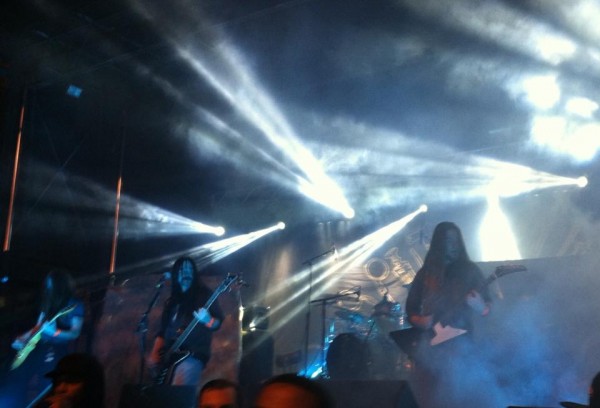
Carcass
When a band comes out of retirement, there should be a community of independently like-minded individuals who question their motivations, forcing the band members themselves to introspect honestly, instead of only appearing to do so. Not many people will admit that after Symphonies of Sickness this band’s career took a drastic trip south in quality in terms of existential seriousness, in fact becoming a milquetoast series of affairs. The mixing engineer did these veterans no favours, but they were doomed from the start to show a huge audience a good time with what turned out to be a performance bereft of soul and even shaky technique as Jeff Walker struggles through his more demanding vocal sections. Personally, this reviewer enjoys on a musical level a great deal of this cheesy porridge, but evidence of this showing is that the forthcoming release will not be worth the time for anyone looking for engagement with any offering containing artistic integrity.
“Suck a new dick.” -Scott Carlson, Repulsion
Regrettably missed: Benediction, Convulse
Saturday May 25
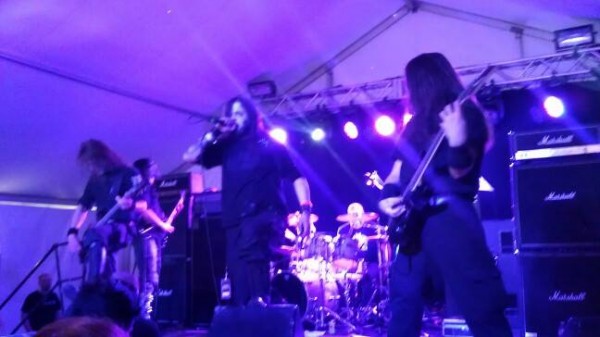
Antaeus
As if wary of burn out, Antaeus temper the reckless excess of past live appearances while still managing to engender a metonymy of Satanic Khaos. The serpent, headed by venomous MkM, terminated by the tail-whip of ceremonial percussion, disseminating hateful sermons of sin and sacrifice unto the gathered black mass of devotees who subsume it gladly into bodily rite like wicked creatures unsatisfied with humble supplication. An incarnation of the underworld serving as liminal barrier to the state of silence left when furious life expires. Impressive as ever, frontman MkM refuses to allow stage presence to slip into merely sufficient professionalism, augmenting the latter with evocations of genuine misanthropic disdain. The next hope for this band is that they take this approach to the studio and make something with the same attitude that gave us their 2000 full-length debut.
Regrettably missed: Anhedonist, Aosoth
MkM with Aosoth
Sunday May 26
Cruciamentum
One of the few post-2005 black death metal bands who know how to build mood intensity while maintaining a firm grasp on structure, what I love about this band is that like the best metal of the 80s and 90s songs sound like the subject matter described in the lyrics, and these point to a will to higher forms of life.
Manilla Road
These guys kick off the heavy metal fare for the final day of the fest with probably the most musically aware performance in comparison to the “sludgers” and “stoners” on show like Sleep. This is probably power metal at its best, though it could also be Iron Maiden/Angel Witch rip-off with touches of early speed metal.
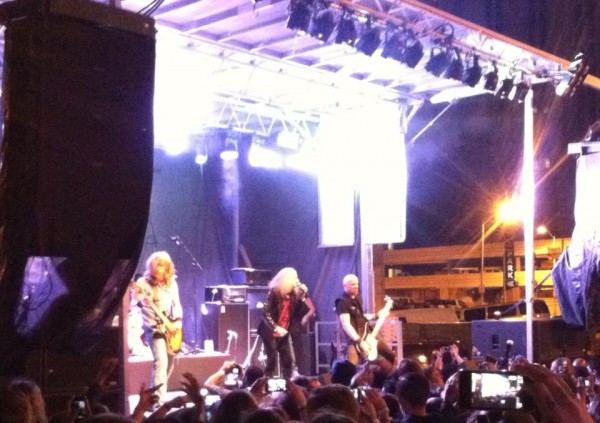
Pentagram
If you’re looking for doom metal you’ll have more luck with Saint Vitus or Black Sabbath, while the stage antics from decrepit scarecrow Bobby Liebling are entertaining all the same. I must be wrong as this heavy metal crew are widely credited as forerunners to the style, but their contribution above Sabbath seems to be more focus on playing lower in the register while chord/note progression is still “safe”. It just ain’t that heavy in an existential sense, songs are about doom but don’t sound like doom, relegating this band to historical/academic interest.
Regrettably missed: Venom, Carpathian Forest (canceled)
All pictures courtesy Sabrina Ellis and Jaqueline Meraz.
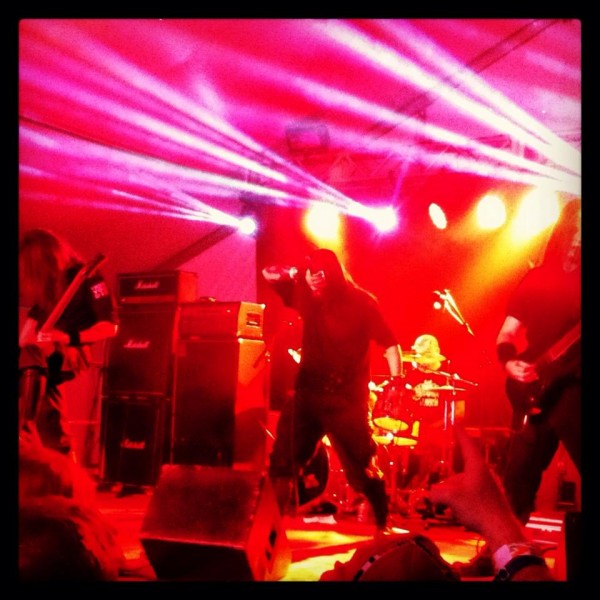
4 CommentsTags: death metal, Grindcore, live, maryland death fest
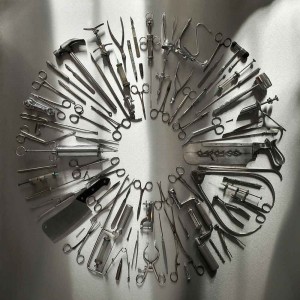 From the opening dual guitar harmonies straight out of 1985 that bring to mind the live intro to a Europe or Stryper set, it’s obvious that this album will be more in line with the guitar hero pop-metal of Arch Enemy than anything from Symphonies of Sickness or Reek of Putrefaction.
From the opening dual guitar harmonies straight out of 1985 that bring to mind the live intro to a Europe or Stryper set, it’s obvious that this album will be more in line with the guitar hero pop-metal of Arch Enemy than anything from Symphonies of Sickness or Reek of Putrefaction.